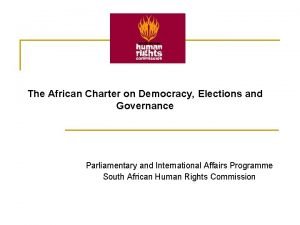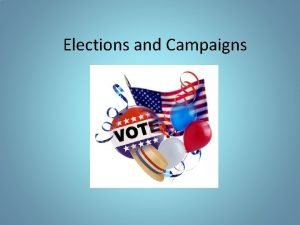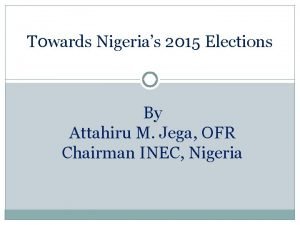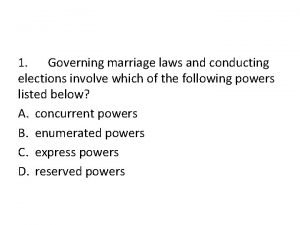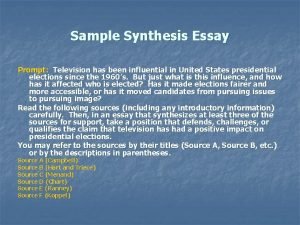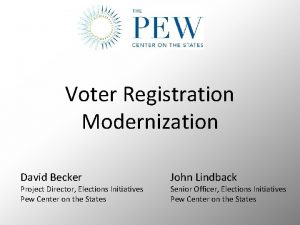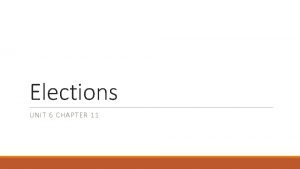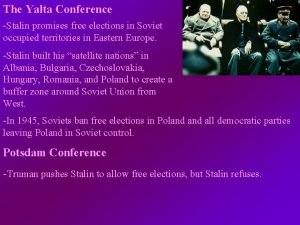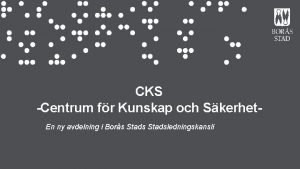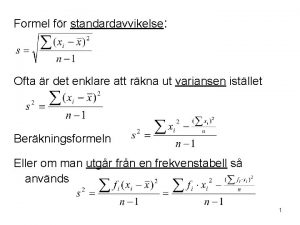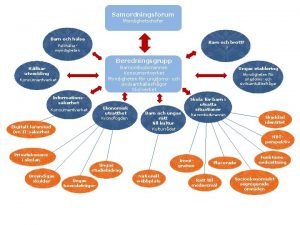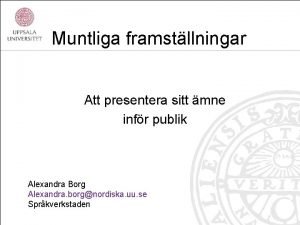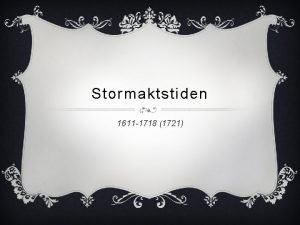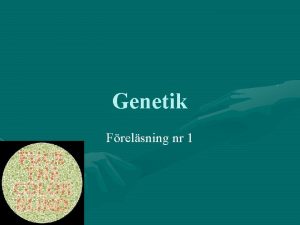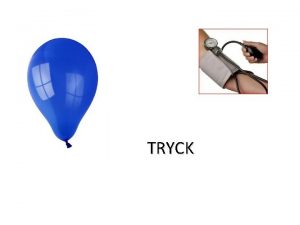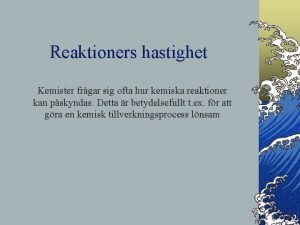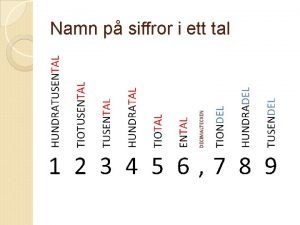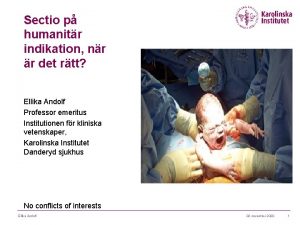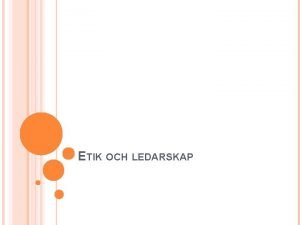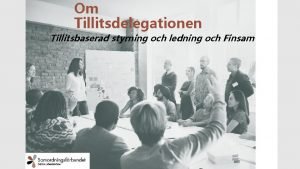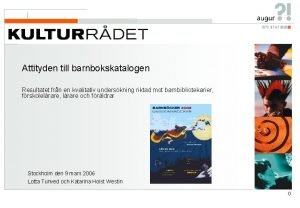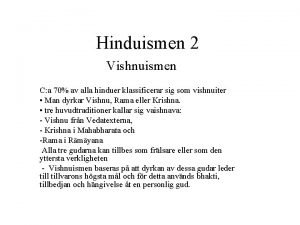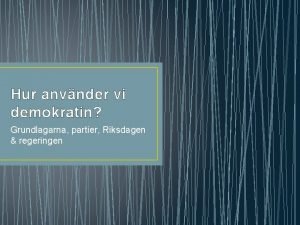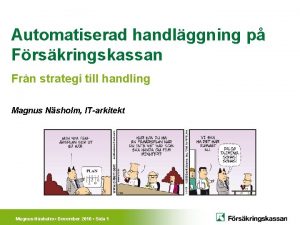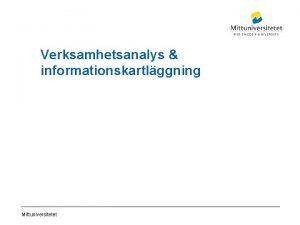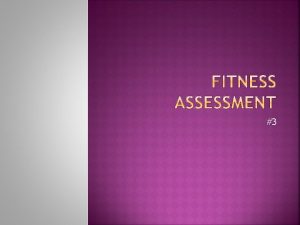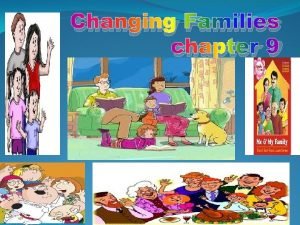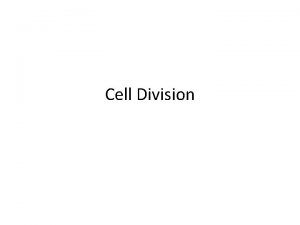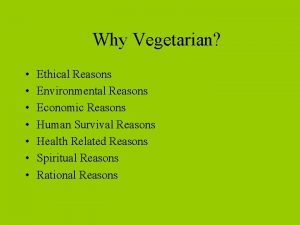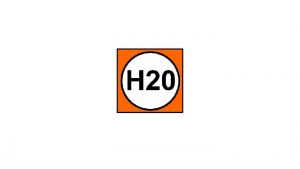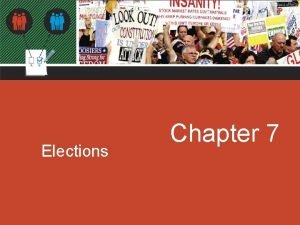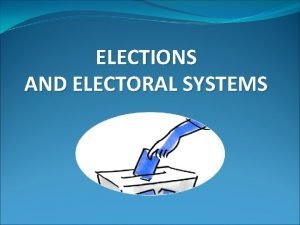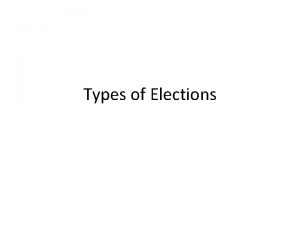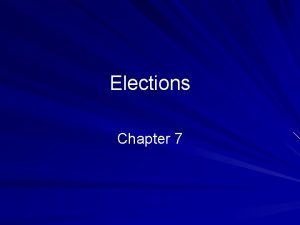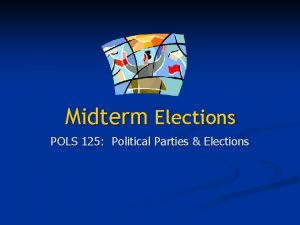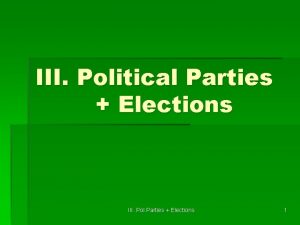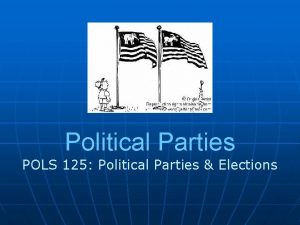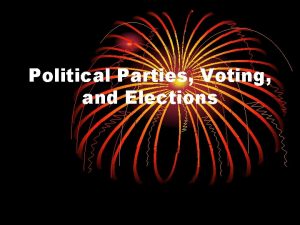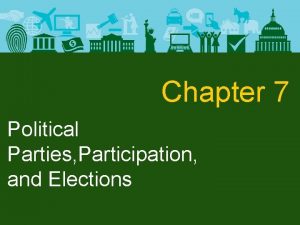Elections Reasons for Elections Reasons for Elections Political



















































































- Slides: 83

Elections

Reasons for Elections?

Reasons for Elections § Political recruitment: transfer power from one government to the next § Representation: give citizens chance to elect representatives, and: § Accountability: enable citizens to hold government to account § Legitimisation: lend legitimacy to government by providing it with an electoral mandate § Elections are …“the cogs which keep the wheels of democracy turning” (D. Farrell) § Essential component of democracy, e. g. South Africa (1994

How does representation work?

How does representation work? § In UK: Trusteeship – elected representatives act as trustees (on behalf of others, using superior knowledge) rather than delegates (act on instructions of others) [NB largely out of date, Burkean model] § The doctrine of mandate – winning election = mandate (instruction or command that gives authority to act in a certain way) [most popular theory in UK] § Descriptive representation – representatives should resemble the group they claim to represent (e. g. class, age, race etc). [if true, big concerns in UK!]

Different types of election in the UK

Elections in the UK?

Elections in the UK ■General elections ■Local elections ■European ■Devolved assemblies ■Other elections, e. g. by-elections, TU elections, party leadership elections

Election General Election Local Election European Election Scottish Parliament Welsh Assembly Northern Ireland Assembly Who votes? How often? Other infö…

Election Who votes? General Election everyone on the electoral register (citizens over 18) Local Election European Election Scottish Parliament Welsh Assembly Northern Ireland Assembly How often? Other infö… before 5 years are up (as of 2011) since 30 s have happened on thursday


Election Who votes? How often? Other infö… General Election everyone on the electoral register (citizens over 18) before 5 years are up (as of 2011) since 30 s have happened on thursday Local Election electoral register of the local area in question depends! counties and london every 4 yrs, shire district ever yr with 4 yr terms European Election Scottish Parliament Welsh Assembly Northern Ireland Assembly

Election Who votes? How often? Other infö… General Election everyone on the electoral register (citizens over 18) before 5 years are up (as of 2011) since 30 s have happened on thursday Local Election electoral register of the local area in question depends! counties and london every 4 yrs, shire district ever yr with 4 yr terms everyone on the European Election electoral register in member states Scottish Parliament Welsh Assembly Northern Ireland Assembly every 5 years 751 MEPs

Election Who votes? How often? Other infö… General Election everyone on the electoral register (citizens over 18) before 5 years are up (as of 2011) since 30 s have happened on thursday Local Election electoral register of the local area in question depends! counties and london every 4 yrs, shire district ever yr with 4 yr terms everyone on the European Election electoral register in member states Scottish Parliament Welsh Assembly Northern Ireland Assembly everyone on the electoral register (citizens over 18) every 5 years 751 MEPs every 4 years 129 MSPs

Election Who votes? How often? Other infö… General Election everyone on the electoral register (citizens over 18) before 5 years are up (as of 2011) since 30 s have happened on thursday Local Election electoral register of the local area in question depends! counties and london every 4 yrs, shire district ever yr with 4 yr terms everyone on the European Election electoral register in member states Scottish Parliament Welsh Assembly Northern Ireland Assembly everyone on the electoral register (citizens over 18) every 5 years 751 MEPs every 4 years 129 MSPs every 4 or 5 years (there have only been 5) 40 AMs

Election Who votes? How often? Other infö… General Election everyone on the electoral register (citizens over 18) before 5 years are up (as of 2011) since 30 s have happened on thursday Local Election electoral register of the local area in question depends! counties and london every 4 yrs, shire district ever yr with 4 yr terms everyone on the European Election electoral register in member states Scottish Parliament Welsh Assembly Northern Ireland Assembly everyone on the electoral register (citizens over 18) everyone on the electoral register every 5 years 751 MEPs every 4 years 129 MSPs every 4 or 5 years (there have only been 5) every 4 or 5 years 40 AMs 108 members, 18 constituencies

Electoral Systems (or: how do we count up the votes and decide who won? )

Electoral Systems… • Plurality Systems: candidate who gets a plurality of the votes (ie the most) wins. • Majoritarian Systems: candidate who gets a majority of the votes (ie more than 50%) wins • Proportional Systems: attempt to produce a more accurate fit between the percentage of votes cast and the percentage of seats won • Mixed Systems: combine elements of all of the above • http: //www. youtube. com/watch? v=1 a. Ba. X 9 GPSa. Q&feat ure=related (should we let idiots vote? !)

Evaluating Electoral Systems • What should an electoral system do/give us? • Jenkins Enquiry 1998: set up by Blair to examine electoral systems. Said: – – Broad proportionality Stable government Extension of voter choice Link between honourable members and geographical constituencies

First Past the Post Electing MPs to the British House of Commons

Some strange facts from previous UK elections…

Strange Election Results… • 1951 election results: Labour 48. 8%, Conservative 48% Cons majority in HOC (26 more seats) • 1974 F election results: Labour 37. 2%, Conservative 37. 9% Lab majority in HOC (4 more seats) What is going on…? !? !

What is the difference in size between the largest and smallest constituency electorate? Isle of Wight: 108, 000 Na h-Eileanan An Iar: 22, 000

How big are the average Scottish and English constituencies? English: 69, 000 Scottish: 55, 000

Social Democrat Party (disillusioned Labour Right) formed in 1981. Won 25% of the vote. Number of Seats: 23 Percentage seats: 4%

The “Winner’s Bonus”: In 1983 and 1987 the Tories won with less than 45% of the vote. What was the size of their majority in seats? Over 100 both times

Number of MPs who did not secure a majority (e. g. more than 50% of the vote) in 2005? Two thirds (66%) 426 MPs

Percentage of MPs that got into power in 2005 with fewer than 40% of the vote? 55 MPs

Last time a UK political party had a majority of the popular vote? 1935

Percentage of wasted votes in 2005 (cast for the loosing candidate)? 52%

Number of unsafe seats (where there is actually a fight between 2 candidates)? 114

Number of successive elections the Conservatives won without ever getting more than 44% of the vote? 4

How does FPTP work?

First Past the Post • Simple plurality • Single member constituencies Size Matters! • Two Party System • 650 Constituencies in UK • http: //www. youtube. com/watch? v=Ak. Eyz 9 I_6 A&feature=relmfu

What is good about it?

Evaluating Electoral Systems • What should an electoral system do/give us? • Jenkins Enquiry 1998: set up by Blair to examine electoral systems. Said: – – Broad proportionality Stable government Extension of voter choice Link between honourable members and geographical constituencies

First Past the Post What’s Good? • What is the voters’ experience of FPTP like? • What kind of outcomes do you usually get? • What kind of majorities do you usually get? • Why are some people massively in favour of single member constituencies?

What is bad about it?

First Past the Post What’s Bad? • Look at the statistics… – Twice in post-war UK politics the party coming second in the popular vote has “won” the election by securing more seats in the HOC: 1951, 1974 F. – Two thirds of MPs elected in 2005 did not secure a majority in their constituency (426 MPs, 66%) – The last time a UK political party won with a majority was in 1935 • Is everyone’s vote of equal value? Impact on campaigning/listening? • Do voters have a meaningful choice of different things to vote for?

Two-party system ■ ■ Favours 2 main parties (Lab & Cons) Smaller parties disadvantaged, e. g. in 2010 Lib Dems won 57 seats with 23% whilst Lab won 258 seats with 29%

Winner’s bonus ■ Landslide effect, e. g. Cons (1983 & 1987) & Lab (1997 & 2001) – 2001 Lab won 40% of vote but 413 of seats in Parliament

Discrimination against smaller parties ■ ■ No rewards for coming second Votes are spread thinly across the country

Single Party Government ■ ■ Working majorities Coalitions rare 1974 Lab minority govt 2010 Con-Dem st Coalition 1 since National Government of WWII

Other Systems

The Alternative Vote

Alternative Vote http: //www. youtube. com/watch? v=3 Y 3 j. E 3 B 8 Hs. E&feature=BFa&list=PL 7679 C 7 ACE 93 A 5638&lf=BFa • Elections happen in single member constituencies • Winning candidate has to get an overall majority • Instead of voting for a single candidate, voters rank candidates • If no candidate gets 50% of the vote, the lowest placed candidate is eliminated, and their ballots given to the 2 nd preferences • This carries on until one candidate gets 50%+1 • Used in Australia

What is good about it?

Alternative Vote What’s Good? • Are more or less people likely to be happy with the outcome? • What is the benefit of retaining the single member constituencies?

What is bad about it?

Alternative Vote What’s Bad? • How proportional is it likely to be? • How is it likely to affect swing? • Think about the situation where my first 4 preferences have been eliminated – how much do I care about my 5 th preference vote?

The HORRENDOUS campaign in the UK before the 2011 referendum on AV • It was full of lies on both sides. DO NOT use it. • No to AV: It will cost £ 250 million. (This figure was including the approx £ 80 million cost of the referendum, that had already been agreed, even then contentious – included counting machines that are being bought for FPTP anyway) • Yes to Fairer Votes: It will lead to more coalitions. (Roy Jenkins research in 1998 showed this is untrue) Supported by Tories, BNP, Respect, Communist Party Supported by Lib Dems, Green, UKIP, 38 degrees, electoral reform society,


The Supplementary Vote

Supplementary Vote • Variant of AV (cross between AV and French Double Ballot (two elections two weeks apart) • Designed for use in London Mayoral Election • Voter records first and second preference only • If nobody gets 50%+, all but the top two candidates are eliminated, and second preference votes redistributed

What is good about it?

Supplementary Vote What’s Good? • Easier or harder than AV/FPTP? • How will it impact on votes for crazies? • Does it affect the single member constituency link to MP? • Which of the problems of AV does it avoid?

What is bad about it?

Supplementary Vote What’s Bad? • Is it proportional? • Is it a true majoritarian system? • Does it provide people with real, meaningful choice? • Consider the impact on parties that have spread out support vs concentrated support…

The Party List system

List (open and closed) • Large multi-member constituencies • Seats allocated according to % of seats won by each political party • Open list: voters choose from a list of individual candidates representing parties • Closed list: voters choose a party “slate” or independent candidate (party managers choose who gets the seats they are allocated) • Open list used in Austria, Finland, Sweden • Closed list used in UK EU elections, Portugal, Spain • Israel treats the whole country as one huge constituency

What is good about it?

List Systems What’s Good? • How proportionate is it likely to be? • How will small parties feel about this? • How likely are coalitions? • If a party wanted to increase representation of e. g. women, minorities – could they? • Are votes counted equally? Are they wasted?

What is bad about it?

List Systems What’s Bad? • How simple is it? How easy for voters to understand? Returning officers? • Consider closed list: how much choice do voters get? • How likely are coalitions? • how easy would it be for a voter in Israel to go to their local representative with a problem?

The Single Transferable Vote

Single Transferable Vote • http: //www. youtube. com/watch? v=9 f. LO 0_GQVv. Y&feature=related • http: //www. youtube. com/watch? v=887 s. Gav. I 9 k. Y&feature=related • Large, multi-member constituencies • In order to get elected, candidate must reach a certain quota, found by the Droop Formula… Total valid votes Droop = (----------------) + 1 Total number seats +1 • If a candidate gets more than droop, ballots are redistributed according to 2 nd prefs – might lead to more candidates reaching droop • Lowest candidate eliminated, ballots redistributed – might lead to more reaching droop • Repeat until all seats allocated!

What is good about it?

STV What’s Good? • How proportionate is it? • How likely are you to get a party elected with fewer than 50% of the vote? • How much meaningful choice do voters get? • What would smaller parties feel about it? • How likely are women and ethnic minorities to get elected? • How likely are coalitions?

What is bad about it?

STV What’s Bad? • How simple is it? !? ! (voters, returning officers) • How likely are coalitions? • What are the problems with large multi-member constituencies?

AMS/SM/MMP

Additional Member System / Supplementary Member/ Mixed Member Proportionate • http: //www. youtube. com/watch? v=x 07 q-q. Cpu. YU&feature=relmfu • http: //www. youtube. com/watch? v=QT 0 I-sdo. SXU&list=PL 7679 C 7 ACE 93 A 5638&index=4 • Mix between FPTP and Party List • Used in Germany, Scottish Assembly, Welsh Assembly, London Assembly • Voter has two votes Total votes for party D’Hondt = -------------Number of seats already allocated under FPTP +1 – First Vote: elect MP for constituency using FPTP (73 MPs) – Second Vote: choose party. Additional members allocated from list to make parliament more proportionate (56 MPs) UK uses D’Hondt formula to decide how many more seats to add. • Split different: Germany 50/50, Italy 75/25.

What is good about it?

AMS/SM/MMP What’s Good? • How proportionate are the results? • How would small parties feel? • MP/Constituency link? • Coalitions? • Women and minority groups? • Are votes equal/wasted? USEFUL FACTS TO WRITE DOWN AMS has benefited smaller parties in Scottish Assembly, e. g. Greens and Scottish Socialists have more seats through second votes Coalition in power in Scotland since 1999, Coalitions common in Israel and Germany (use of various PR schemes)

What is bad about it?

AMS/SM/MMP What’s Bad? • Do all MPs have the same status? Same duties? • How proportionate is it? • How likely are coalitions?

Where are these systems used in the UK?

Scottish Parliament • Electoral system used: AMS (hybrid), 57% FPTP, 43% using PR (d’Hondt Formula) • 1999 & 2003 Lab largest single party; formed coalitions with Lib-Dens • Last election = 2011 (results below). Next = 2016

Welsh Assembly • Electoral system used: AMS (hybrid), 66% FPTP, 33% PR (d’Hondt Formula) • 1999 & 2003 Lab largest single party, initially formed minority govt & then coalition with Lib-Dem • Last election = 2011 (results below). Next = 2016

Northern Ireland Assembly • Electoral system: STV, 108 members; Droop quota requires 14. 3% vote to be achieved before can be elected • Set up following 1998 Good Friday Peace Agreement • Regular suspensions, notably 2002 -7 • Last election = 2011 • Next = 2016

Greater London Assembly • Electoral system: AMS, 57% FPTP, 43% PR (d’Hondt Formula) • Threshold of 5% - keeps out extremists, e. g. BNP • Last election = 2012 • Next = 2016

European Parliament • Electoral system used: PR (closed list); STV in Northern Ireland • Previous electoral system: FPTP when UK only member state not to use PR; changed under New Labour • Last election = 2014 • Next = 2019

Where are these systems used in the UK? System Where used FPTP HOC Local Government in England Wales AMS Scottish Parlt Welsh Assembly GLA STV Northern Ireland Assembly Local Govt in Scotland N Ireland Regional Party List European Parliament SV or AV London mayor Local Government by-elections in Scotland
 African charter on democracy, elections and governance
African charter on democracy, elections and governance Presidential elections exploration and announcement
Presidential elections exploration and announcement Conclusion on elections
Conclusion on elections Governing marriage laws and conducting elections
Governing marriage laws and conducting elections Ap lang synthesis essay television presidential elections
Ap lang synthesis essay television presidential elections David becker elections
David becker elections “elections are key to democracy”
“elections are key to democracy” Stalin promise free elections
Stalin promise free elections Inköpsprocessen steg för steg
Inköpsprocessen steg för steg Tack för att ni har lyssnat
Tack för att ni har lyssnat Ekologiskt fotavtryck
Ekologiskt fotavtryck Centrum för kunskap och säkerhet
Centrum för kunskap och säkerhet Påbyggnader för flakfordon
Påbyggnader för flakfordon A gastrica
A gastrica Egg för emanuel
Egg för emanuel Tack för att ni har lyssnat
Tack för att ni har lyssnat Formel gruplar
Formel gruplar Myndigheten för delaktighet
Myndigheten för delaktighet Tack för att ni lyssnade
Tack för att ni lyssnade Rutin för avvikelsehantering
Rutin för avvikelsehantering Fspos
Fspos Treserva lathund
Treserva lathund Presentera för publik crossboss
Presentera för publik crossboss Kung som dog 1611
Kung som dog 1611 Debatt mall
Debatt mall Tobinskatten för och nackdelar
Tobinskatten för och nackdelar Kraftledning karttecken
Kraftledning karttecken Mitos steg
Mitos steg Rbk fuktmätning
Rbk fuktmätning Referatmarkering
Referatmarkering Shingelfrisyren
Shingelfrisyren Programskede byggprocessen
Programskede byggprocessen Vätsketryck formel
Vätsketryck formel Densitet vatten
Densitet vatten Elektronik för barn
Elektronik för barn Trög för kemist
Trög för kemist Tack för att ni har lyssnat
Tack för att ni har lyssnat Matte större än tecken
Matte större än tecken Smärtskolan kunskap för livet
Smärtskolan kunskap för livet Typiska novell drag
Typiska novell drag Fimbrietratt
Fimbrietratt Argument för teckenspråk som minoritetsspråk
Argument för teckenspråk som minoritetsspråk Indikation för kejsarsnitt på moderns önskan
Indikation för kejsarsnitt på moderns önskan För och nackdelar med firo
För och nackdelar med firo Bris för vuxna
Bris för vuxna Blomman för dagen drog
Blomman för dagen drog Geometri för barn
Geometri för barn Borra hål för knoppar
Borra hål för knoppar Ledarskapsteorier
Ledarskapsteorier Redogör för vad psykologi är
Redogör för vad psykologi är En lathund för arbete med kontinuitetshantering
En lathund för arbete med kontinuitetshantering Mat för idrottare
Mat för idrottare Publik sektor
Publik sektor Datorkunskap för nybörjare
Datorkunskap för nybörjare Antika plagg
Antika plagg Tillitsbaserad ledning
Tillitsbaserad ledning Steg för steg rita
Steg för steg rita Skriven med rytm och rim
Skriven med rytm och rim Ministerstyre för och nackdelar
Ministerstyre för och nackdelar Bat mitza
Bat mitza Nationell inriktning för artificiell intelligens
Nationell inriktning för artificiell intelligens Claes martinsson
Claes martinsson Nyckelkompetenser för livslångt lärande
Nyckelkompetenser för livslångt lärande Tidbok för yrkesförare
Tidbok för yrkesförare Jätte råtta
Jätte råtta Mästar lärling modellen
Mästar lärling modellen Vishnuiter
Vishnuiter Stål för stötfångarsystem
Stål för stötfångarsystem Orubbliga rättigheter
Orubbliga rättigheter Exspektans eller expektans
Exspektans eller expektans Verktyg för automatisering av utbetalningar
Verktyg för automatisering av utbetalningar Sju för caesar
Sju för caesar Adressändring ideell förening
Adressändring ideell förening Jag har nigit för nymånens skära text
Jag har nigit för nymånens skära text Boverket ka
Boverket ka Strategi för svensk viltförvaltning
Strategi för svensk viltförvaltning Vad är verksamhetsanalys
Vad är verksamhetsanalys Läkarutlåtande för livränta
Läkarutlåtande för livränta Why do maycomb officials bend the rules for the ewells
Why do maycomb officials bend the rules for the ewells Reasons for fitness testing
Reasons for fitness testing What changes occurred in nimmi's family
What changes occurred in nimmi's family Which is a reason cells divide
Which is a reason cells divide Writing reasons
Writing reasons Department account
Department account
